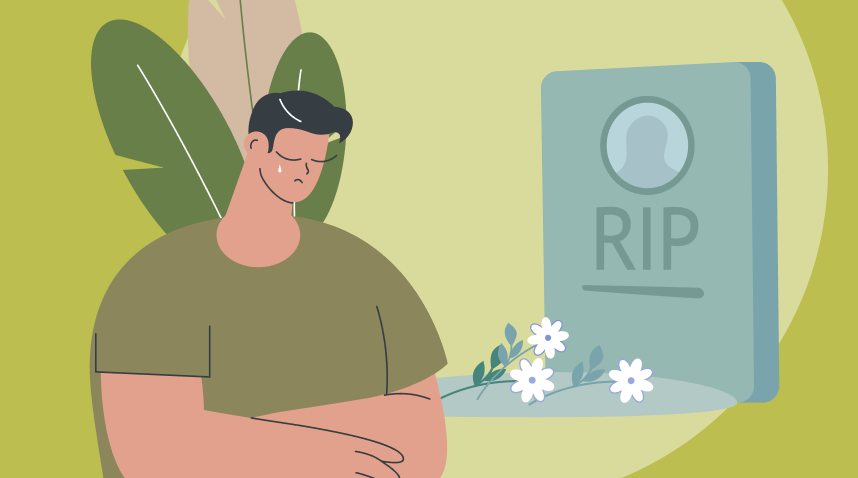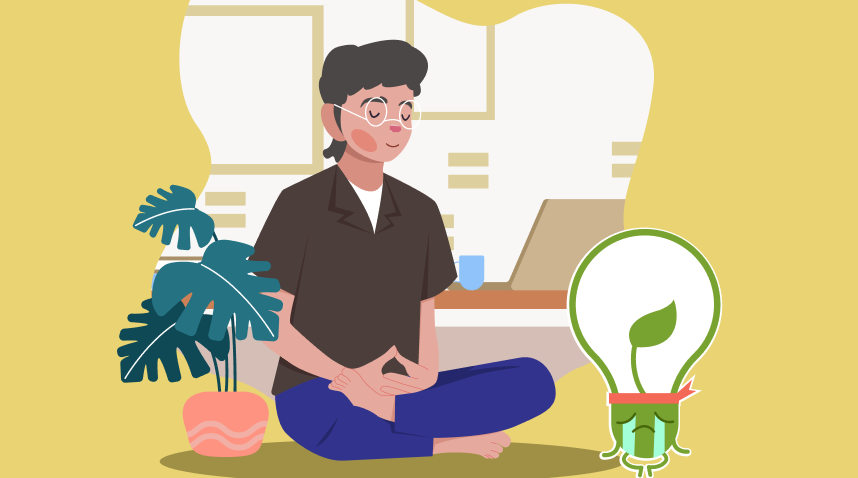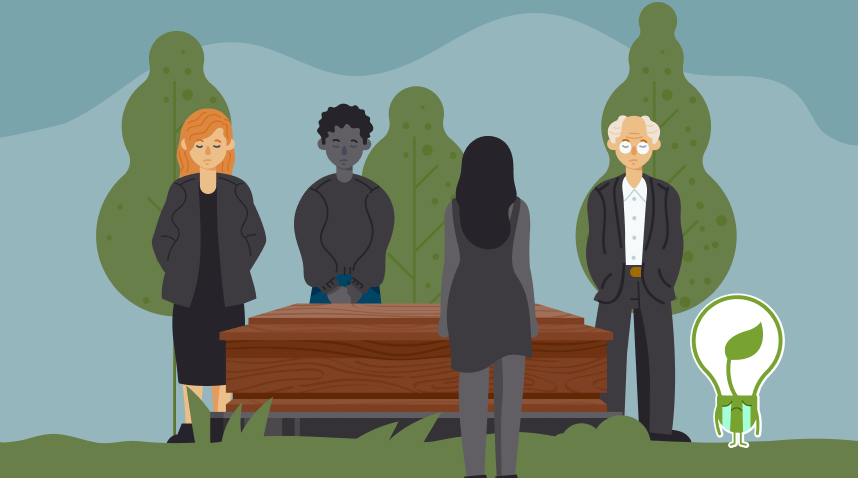TLDR: Most people avoid thinking about death, but Buddhists embrace it. Learn why contemplating mortality is considered the supreme mindfulness meditation.
TW: This article contains content focused on dying, death contemplation, and the end of life.
One day, we are all going to die.
How does being reminded of the above make you feel? I remember reading a Peanuts comic strip of Charlie Brown lamenting to Snoopy, “Some day, we will all die, Snoopy!” Snoopy replied, “True, but on all the other days, we will not.”
People usually do not want to think or talk about death. Consciously or unconsciously, we have a fear of death, a tendency to avoid thinking about it, and a reluctance to come face to face with this reality of life.
“The idea of death, the fear of it, haunts the human animal like nothing else,” wrote American cultural anthropologist, Ernest Becker in his book, The Denial of Death.
A survey on death attitudes conducted by Lien Foundation in 2014 showed that:
i. Only 50% of Singaporeans have ever talked about death and dying with their loved ones.
ii. Only 36% feel comfortable talking about their death.
Such mentality is similar in Western societies like Britain where a ComRes survey in 2014 found that eight in ten British people are uncomfortable talking about death, and only a third have written a will.
A student shared with me his experience attending a wake. He took only one look at the deceased’s face in the glass-covered coffin and that was enough for him to have a nightmare of ghosts haunting him that very night.

What is the Buddhist perspective of death?
According to the Buddhist perspective, death is not a subject to be shunned and avoided. It is by understanding death that we come to understand life and its impermanence. The Buddha highly encouraged the practice of mindfulness of death. A Buddhist quote echoes that: “Of all the footprints, that of the elephant is supreme. Similarly, of all mindfulness meditations, that on death is supreme.”
This practice of mindfulness of death is known as Marananussati Bhavana. To practise it, one must at stated times, and also every now and then, return to the thought “death will take place”.
The Visuddhi Magga, written by 5th Century Buddhist Scholar Buddhaghosa, teaches that to obtain the fullest results, one should practise this meditation with mindfulness, a sense of urgency, and understanding.
In the Anguttara Nikaya, the Buddha said, “Oh Monks, there are ten ideas which if made to grow, made much of, are of great fruit, of great profit for plunging into Nibbana, for ending up in Nibbana. Of these ten ideas, one is death.”
Contemplation on death and other forms of sorrow such as old age and sickness can drive us to practise and ultimately lead to liberation from the cycle of birth and death. Indeed, it was said that the sight of an old man, a sick man, a dead man, and an ascetic propelled Prince Siddhartha to renounce everything and embark on a journey that ended in the attainment of Buddhahood.
Contemplating Death

Contemplating death is such a useful and transformative practice, bringing about the following benefits as stated in the Visuddhi Magga:
“The disciple who devotes himself to this contemplation of death is always vigilant, takes no delight in any form of existence, gives up hankering after life, censures evil doing, is free from craving as regards the requisites of life, his perception of impermanence becomes established, he realises the painful and soulless nature of existence and at the moment of death, he is devoid of fear, and remains mindful and self-possessed. Finally, if in this present life he fails to attain Nibbana, upon the dissolution of the body he is bound for a happy destiny.”
Thus, mindfulness of death purifies the mind and has the effect of reducing our fear and discomfort of death. In the last moments of our lives, it helps us to face the situation with calm and understanding.
A student shared that by asking himself what matters on the last day of his life, many concerns, problems, and worries become insignificant, as they are put in the proper perspective.
Hence, it is said in the Visuddhi Magga, “Now when a man is truly wise, his constant task will surely be this recollection about death, blessed with such mighty potency.”
The science of facing death
Scientific studies also suggest that contemplation of death can produce beneficial effects. A 2007 study conducted by the University of Kentucky found that “thinking about death fosters an orientation toward emotionally pleasant stimuli.”
The study, conducted by researchers Nathan Dewall and Roy Baumeister, concluded that “death is a psychologically threatening fact, but when people contemplate it, apparently the automatic system begins to search for happy thoughts”.
Therefore, contrary to the idea that contemplating death will make us depressed, it could steer us towards more positive thoughts, and propel us to lead our lives in a more meaningful way.
In Bhutan, which is often regarded as one of the happiest countries in the world, there is a folk saying that goes, “To be a truly happy person, one must contemplate death five times daily.”
Are you ready to think about your death more often? Remember: One day you will die.
“People go through life blindly, ignoring death like revellers at a party feasting on fine foods. They ignore that later they will have to go to the toilet, so they do not bother to find out where there is one. When nature finally calls, they have no idea where to go and are in a mess.”
~Ajahn Chah
Wise Steps:
- Start small: Begin by dedicating a few minutes each day to contemplate your mortality.
- Reflect on life’s priorities: Ask yourself what truly matters in light of your finite existence.
- Discuss openly: Break the taboo by talking about death with loved ones. Initiate conversations about end-of-life wishes and experiences with family and friends.


